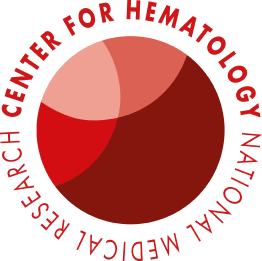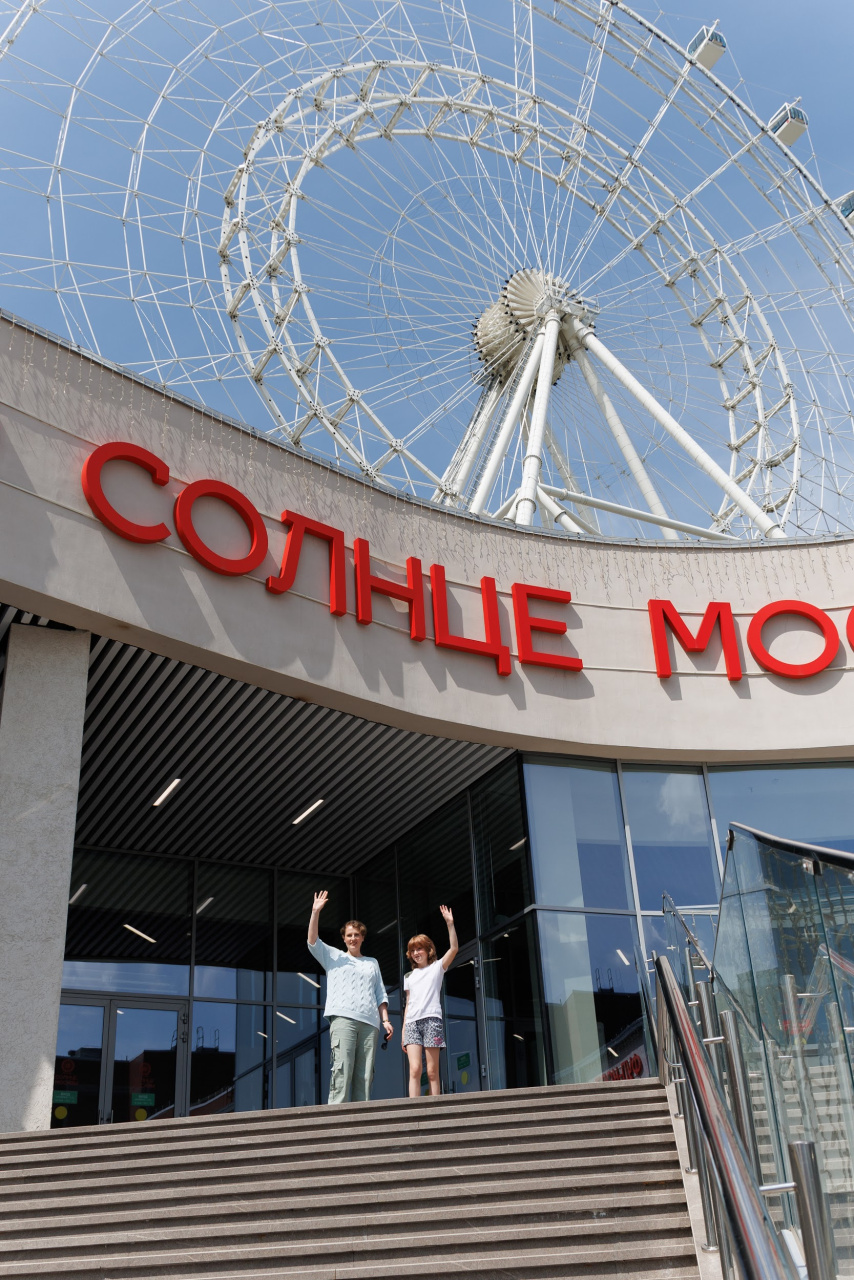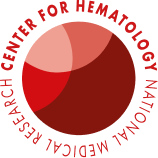Anna Koroleva was diagnosed with large B-cell lymphoma during pregnancy. 12 years later, Anna came to the photo shoot of the Project "I Will Live!" with her daughter Alyona to tell us about her story in more detail. She decided to take part in the Project to support those who are currently struggling with their disease.
— How did you find out about your illness?
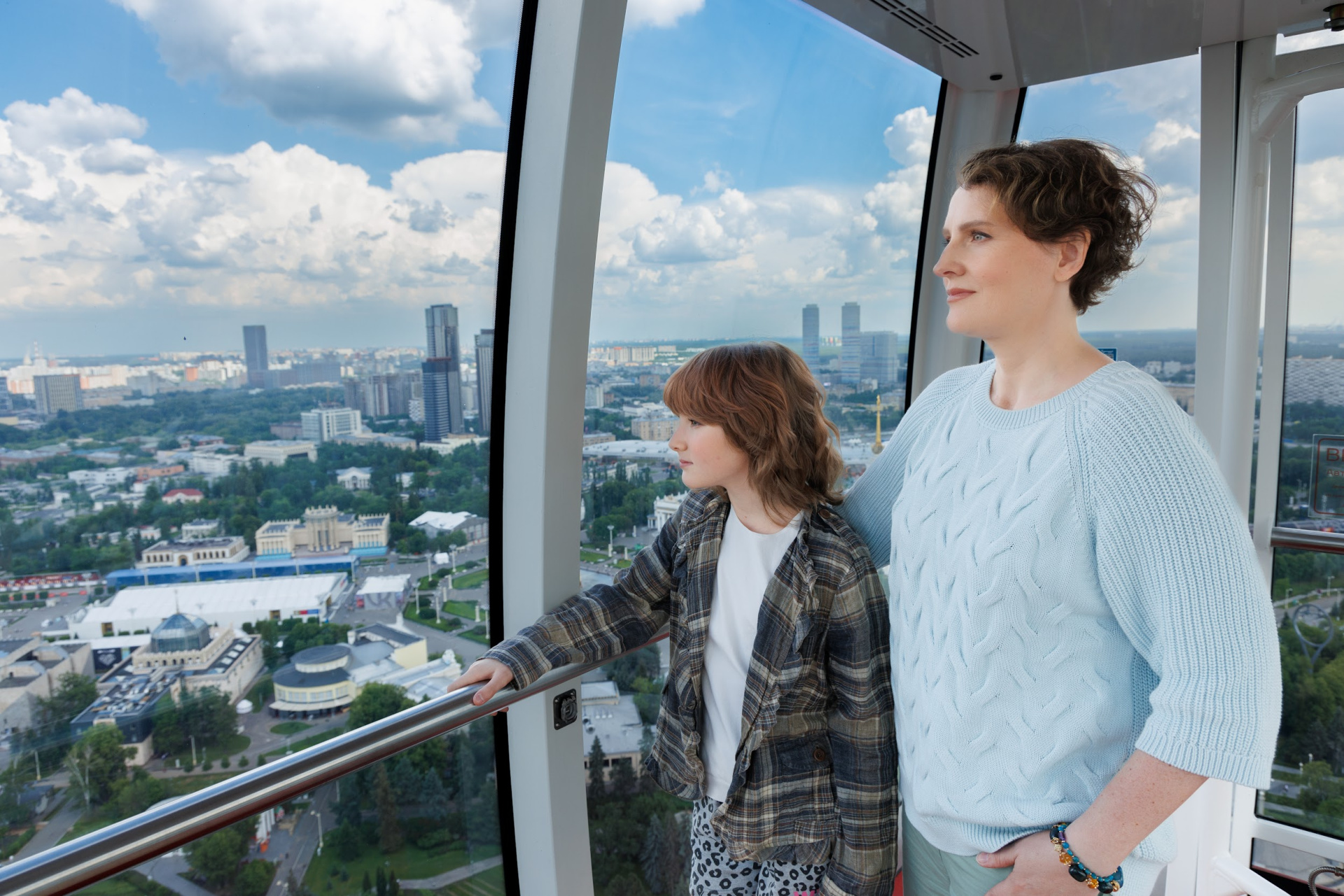 When I found out about my illness, I was four months pregnant. I complained of certain symptoms, but no one could have imagined that it was cancer. It was difficult to breathe while lying down, there was severe general weakness, and a huge tumor on my neck. I was sent to one of the Moscow clinics where I was very unpleasantly stabbed in the neck with a needle. They thought I had a problem with my thyroid, but nothing was found. Then, they did a CT scan and found a tumor. I remember this moment well. I asked the doctor what would happen to the baby. ‘Think about yourself first,’ she replied. I was in shock. There were no other emotions at that moment. I closed the door behind me, sat on a bench and called my mom. I felt like I needed to share the news with someone, to tell them, because I couldn't be left alone with these thoughts. Then I called my close friend. It was good that I had someone to call. Gradually, I came to the realization of what was happening to me, but there was still no fear. It was more like shock.
When I found out about my illness, I was four months pregnant. I complained of certain symptoms, but no one could have imagined that it was cancer. It was difficult to breathe while lying down, there was severe general weakness, and a huge tumor on my neck. I was sent to one of the Moscow clinics where I was very unpleasantly stabbed in the neck with a needle. They thought I had a problem with my thyroid, but nothing was found. Then, they did a CT scan and found a tumor. I remember this moment well. I asked the doctor what would happen to the baby. ‘Think about yourself first,’ she replied. I was in shock. There were no other emotions at that moment. I closed the door behind me, sat on a bench and called my mom. I felt like I needed to share the news with someone, to tell them, because I couldn't be left alone with these thoughts. Then I called my close friend. It was good that I had someone to call. Gradually, I came to the realization of what was happening to me, but there was still no fear. It was more like shock.
Then, began a long list of examinations and a search for a doctor. First, I was given a referral to the Kashirskaya Central District Hospital. The appointment was conducted by two young doctors. They informed me that I should have an abortion and then start chemotherapy. Mom and I got up and left. My mother worked as a psychiatrist. She had an appointment with a patient the next day. When she came to work, her colleagues noticed her condition and asked her what had happened. One of her colleagues advised her to contact the NMRC for Hematology and gave her the phone number of the lymphoma department. My mother is forever grateful to her. So, I ended up in the hands of the best doctors- Aminat Umarashabovna Magomedova and Yana Konstantinovna Mangasarova. And so, began the story of saving me and my unborn daughter.
— How was the treatment?
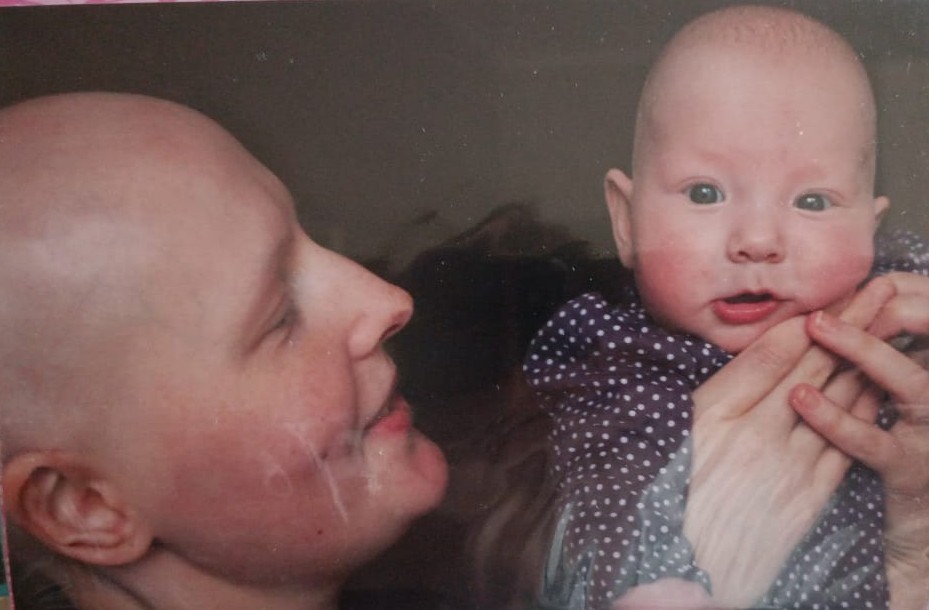 Treatment began during pregnancy. I was prescribed 12 doses of "red chemo.” I came to it every week. This drug does not penetrate the placenta, so it can be used during pregnancy. I was strictly told to monitor my temperature, but I took this advice lightly. I missed that my temperature began rising bit by bit. Bilateral pneumonia developed and I was admitted to the intensive care unit. This is the best intensive care unit in the city, because relatives are allowed to visit. My friends and my mother came to see me. I can't say that it was good to be in intensive care, but they helped me a lot there, in fact, they saved me. Due to pregnancy, I could not be given heavy antibiotics, and it was decided to fight for my unborn child to the last. My belly was big, on the sixth month of pregnancy, close to giving birth, and the doctors were struggling. A little while later the doctor honestly admitted that if the situation had worsened, the decision would not have been in our favor. I still remember this intensive care unit and the chief resuscitator who saved me.
Treatment began during pregnancy. I was prescribed 12 doses of "red chemo.” I came to it every week. This drug does not penetrate the placenta, so it can be used during pregnancy. I was strictly told to monitor my temperature, but I took this advice lightly. I missed that my temperature began rising bit by bit. Bilateral pneumonia developed and I was admitted to the intensive care unit. This is the best intensive care unit in the city, because relatives are allowed to visit. My friends and my mother came to see me. I can't say that it was good to be in intensive care, but they helped me a lot there, in fact, they saved me. Due to pregnancy, I could not be given heavy antibiotics, and it was decided to fight for my unborn child to the last. My belly was big, on the sixth month of pregnancy, close to giving birth, and the doctors were struggling. A little while later the doctor honestly admitted that if the situation had worsened, the decision would not have been in our favor. I still remember this intensive care unit and the chief resuscitator who saved me.
On the seventh month of pregnancy, I had a caesarean section. It was difficult because it was only two weeks after the pneumonia. I barely had any time to recover. I was operated on under epidural anesthesia. There was a screen between me and the doctors. I didn't really hear the cry, but I remember how a little hand appeared and she waved at me. It was happiness. It was pride. Of course, this is not how I imagined it. I thought that the baby would be full-term, and that she would weigh 3 kilograms, and that I would give birth myself, but life made its own adjustments. If you want to make God laugh, fantasize and make plans. It wasn't like I had imagined, but it was happiness.
I was allowed to see my daughter only two days later. Everything was sterile in the children's ward. Small babies in glass boxes. My Alyona was tiny, only 1.5 kilograms, and even lost weight after her birthday. I stood over her and thought. Needles were everywhere, and she was being fed. The doctor said, ‘Your girl is a fighter. She won’t calm down until we feed her twice.’
— Please tell us about your daughter.
Now, Alyona is 11 years old and has just graduated from the 5th grade. This is some kind of fairy tale. She studies languages, loves to draw, and is very cheerful and active. She is makes all A’s, although I do not require this from her. While I was in Moscow on business, she sent me a video of her report card. There were no B’s. I always tell her that this is not the most important thing, but she’s just used to doing her job well. The most important thing is that a person finds himself doing something that he or she loves. So far, she's grasping at everything, and she hasn't chosen one thing. At the age of 11, it's normal not to know what you want. Some people start studying another specialty at the age of 30.
— What are you doing now?
A few years ago, my husband, my children and I moved from Moscow to the countryside. I do what I love: I collect and sell antique buttons a little. I have always liked creativity. I graduated from the Faculty of Technology of Artistic Stone Processing at the Mining Institute. When I went to work after my illness, I realized that I couldn't handle the workload. It was hard for me to work five days a week. Now, I have found a comfortable niche for myself.
— What supported you at the time of your illness?
When I got sick, my best friend made a post on a social network about what had happened to me. I didn't ask her to, but she did anyways. I'm very grateful to her for that. Sometimes we are embarrassed to share some things or ask for help, but she did it for me. She made a post describing what situation I was in and what had happened. My friends and classmates visited me, although we had already graduated from the Institute. They were all very supportive. I will never forget that they were there for me during this difficult time. It really helps a lot: calls, correspondence, financial assistance. The feeling that you are not alone. It's as if something is happening inside your body at this moment, as if little people are working in the mines there, repairing and building something. I was held up by kind people who came to me with support.
— Who was your biggest support throughout your treatment?
My mother helped me the most. She was going through the most difficult year of her life at that moment and also the happiest, because of the birth of her granddaughter. She slept for 2-3 hours a day and sometimes did not sleep at all. She worked as a doctor, took care of a premature infant and a sick daughter who was in the hospital. Wherever I should have been, my mom was there. She was torn between work, the baby and the hospital. Mom has endured the hardest time of her life. Even when she was studying to become a doctor at the institute, and it was very difficult to study there, this year proved to be the most difficult for her. My mother was very supportive. She talked to me night and day, and we went through all my tears, fears, and worries together drop by drop, minute by minute. I could even call her at night.
— Which doctors can you remember at the NMRC for Hematology?
There was a whole chain of people working here who saved my daughter and I: Yana Konstantinovna Mangasarova, Aminat Umarashabovna Magomedova, intensive care doctors. The nurses who nursed me back to health played a huge role. They had the main job. These are the angels who are with you all the time, night and day, and from whom you ask for help when you need it. I've never been in the hospital for a long time before. I immediately found myself in a very good place. After chemo, I was put in a separate room, because you can quickly catch an infection from almost anything. I had a TV and the room was bright and cozy. I was resting, you could say.
— Why did you decide to take part in the Project "I Will Live!” ?
I want people who are feeling bad now, experiencing the same feelings now as I once did, to see a story with a happy ending. I want people to know that nothing is lost and that you will come out on the other side of this situation. In 2012 there were no social networks, and I really missed the opportunity to see how other people are being treated and recovering. This is something that is needed to traverse this path. The Project "I Will Live!" is important not only for the sick, but also for the healthy, so that people can see that there are stories with a good ending. I really needed this Project when I was ill. It’s needed in order to simply believe in oneself, so that people are not afraid, and do not think that everything is bad. It is needed so that they understand that they need to fight, fight, and that everything will be OK. .
The Project allows you to balance the negative. Stories often end well, but there is no information about it. There are many people who were saved, but they didn’t share their stories. The more that people see victory over the disease, the more strength both the healthy and those who are fighting currently will have to fight.
When I first got sick, a colleague at work said that I needed to make the decision to live. I didn't understand what she meant by that. My hands were blue and verything hurt. Then, I started thinking about it. When you are being treated and sick, you are not afraid to die, but when you recover and some time passes, fear comes. The question becomes: what are we really afraid of, to live or to die?
Photographer: Denis Lapshin
We would like to express our sincere gratitude to the partners of the Project:
the team of the Ferris Wheel "The Sun of Moscow" for an excellent location and assistance in organizing the photo shoot.
Make-up artist Kristina Vasilevskaya and hair stylist Tatiana Malishevskaya for the beautiful images of the heroines.

